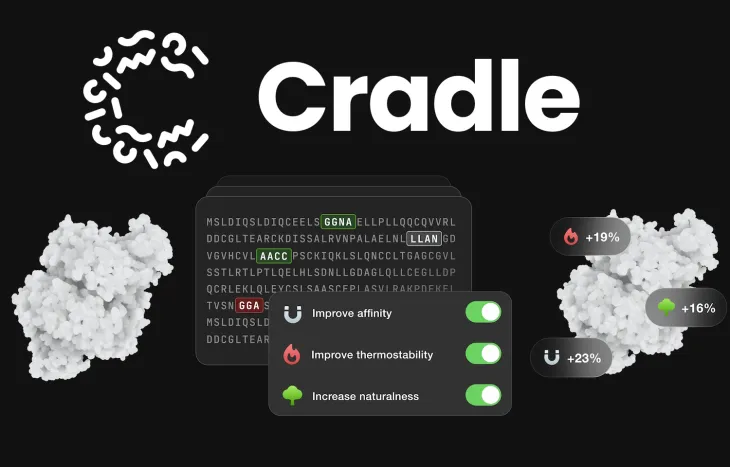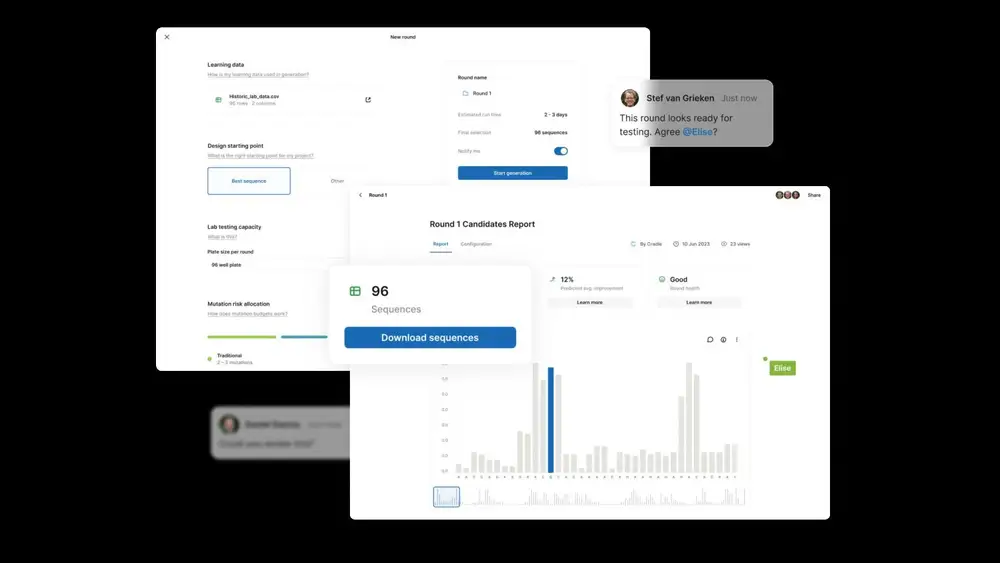Cradle, a promising startup, has recently secured $24 million in new funding
In the rapidly evolving intersection of biotechnology and artificial intelligence, Cradle, a promising startup, has recently secured $24 million in new funding. Since emerging from stealth mode just over a year ago, the company has garnered significant attention and major investments.
While many AI companies in biotech focus on training models to understand molecular structures, Cradle takes a distinctive approach. The company views the long sequences of amino acids constituting proteins in the human body as a complex “alien programming language.” Recognizing the difficulty for humans to comprehend this language, Cradle employs AI models to bridge the gap.
This innovative approach has attracted major players in drug development, such as Johnson & Johnson and Novozymes. Cradle claims that its technology can substantially reduce the time and number of experiments needed to create functional proteins from scratch. Although they haven’t explicitly substantiated claims of halving development time, the company shared a compelling example from its internal development process.
Cradle’s software was used to generate alternative versions of T7 RNA polymerase, enhancing its resistance to high temperatures. Typically, a team might expect less than 5% of purposefully tweaked molecules to exhibit the desired trait. However, Cradle reported that 70% of the variants produced by its platform demonstrated increased stability, equivalent to condensing four or five experimental runs into one.
Beyond T7, is actively working on various projects internally, including a soil decontaminant, a growth factor for cultured meat products, a metabolic pathway-regulating transaminase, and an antibody therapeutic.
Stef van Grieken, CEO and co-founder of Cradle, highlighted the versatility of their technology, stating that it extends beyond drug development to potential applications in food and industry. One notable feature attracting customers is that Cradle doesn’t require a machine learning engineer to operate; instead, it can be directly utilized by scientists and labs.
When asked about building a biotech company in the EU, van Grieken acknowledged both pros and cons. While fundraising for deep-tech ventures in Europe may be more intricate than in the US, he emphasized the wealth of talent in Europe. Notably, he highlighted the strong presence of major tech companies and top-notch universities in the region, making it an increasingly competitive ecosystem.
Cradle’s $24 million Series A funding, led by previous investor Index Ventures, follows last year’s $5.5 million seed round. The company plans to utilize the capital to expand its team and enhance sales efforts, marking another step in its journey to revolutionize protein design through AI.









